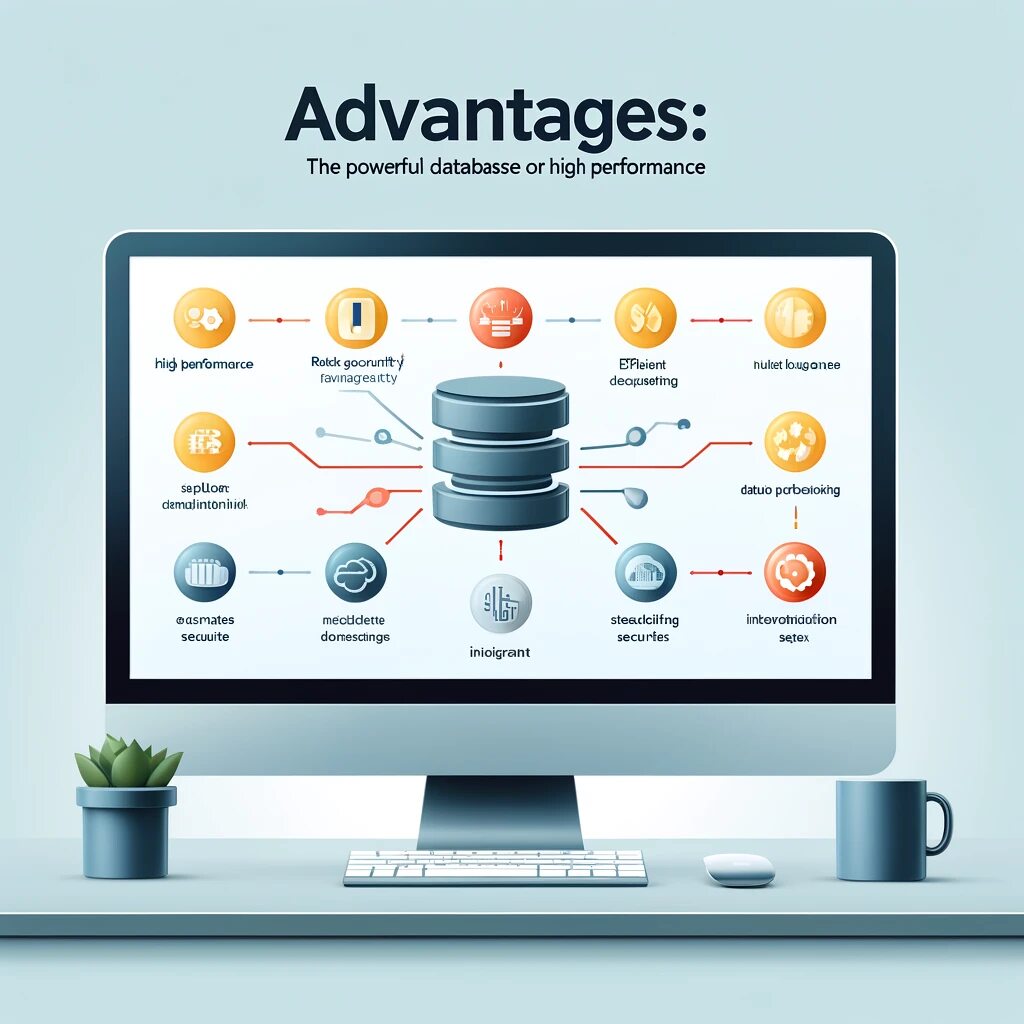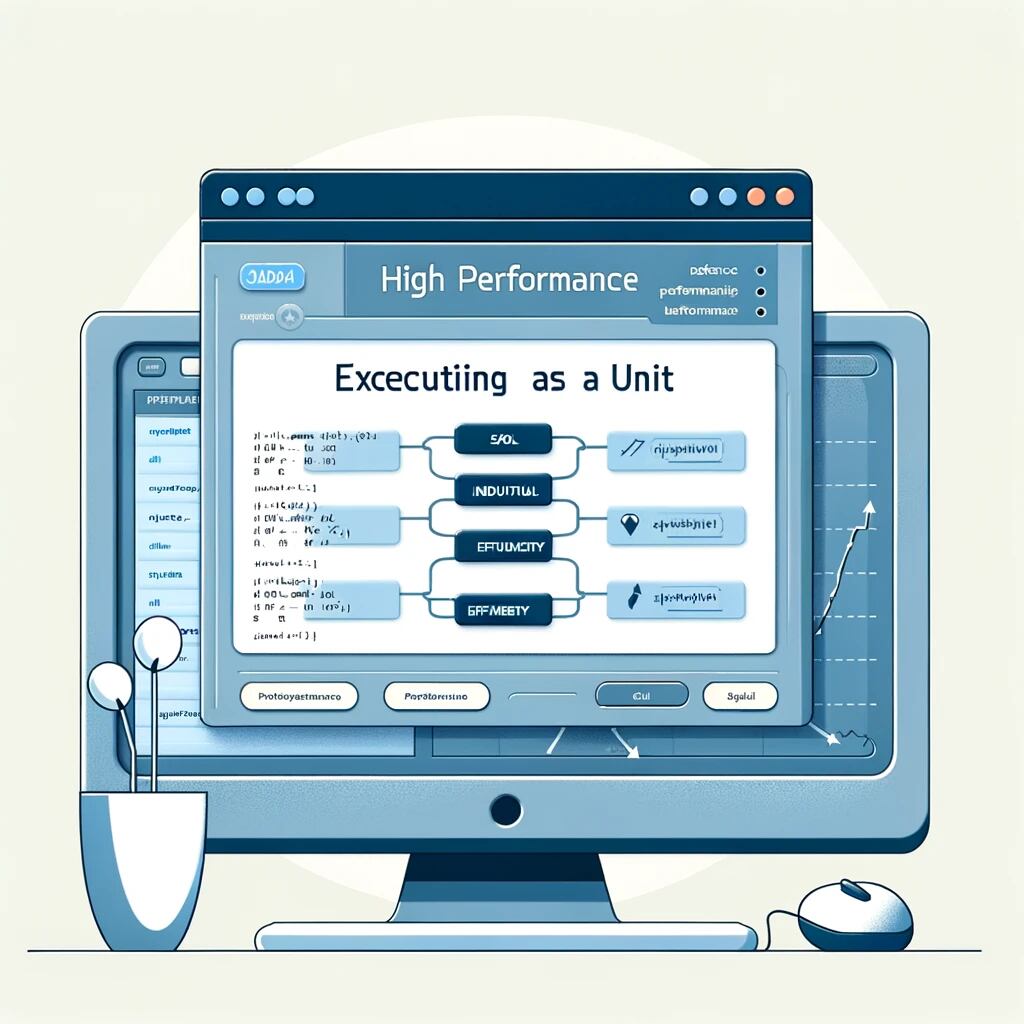Unleash the power advantages of PL/SQL! Explore its key advantages like tight SQL integration, high performance, portability, and more. Discover how PL/SQL empowers efficient and maintainable Oracle database applications.

Introduction: PL/SQL – Powering Oracle Databases
PL/SQL stands for Procedural Language/Structured Query Language. It’s a powerful language specifically designed to extend the capabilities of SQL within the Oracle database environment. In simpler terms, PL/SQL acts as a bridge between SQL’s data manipulation strengths and the procedural elements found in traditional programming languages.
Tight Integration with SQL: A Seamless Dance
One of PL/SQL’s most significant strengths lies in its seamless integration with SQL statements. This tight coupling allows developers to effortlessly combine the power of both languages within a single environment. Here’s how it works:
- Embedding SQL in PL/SQL: PL/SQL programs can directly embed SQL statements for data manipulation tasks like INSERT, UPDATE, DELETE, and SELECT. This eliminates the need to switch between languages for basic database operations.
- PL/SQL Data Types Mirror SQL: PL/SQL utilizes the same data types as SQL. This simplifies data exchange between the two languages, ensuring seamless flow and reducing potential errors caused by data type conversions.
- Calling PL/SQL Functions from SQL: SQL statements can directly call PL/SQL functions. This enables developers to encapsulate complex logic within functions and leverage them from within SQL queries, promoting code reusability and modularity.

Benefits for Data Manipulation:
This tight integration brings numerous advantages for data manipulation tasks:
- Improved Performance: By combining SQL statements within PL/SQL blocks, developers can execute them as a whole, potentially leading to performance gains compared to issuing individual SQL statements.
- Enhanced Readability: Integrating SQL directly into PL/SQL programs improves code readability, as developers can keep data manipulation logic alongside the procedural flow.
- Modularization: The ability to call PL/SQL functions from SQL allows for modular code organization. Complex data manipulation logic can be encapsulated, making the code easier to understand, maintain, and reuse.

High Performance: Executing as a Unit
PL/SQL offers a significant performance advantage over issuing individual SQL statements. This benefit stems from how PL/SQL executes code blocks as a whole. Here’s a breakdown:
Individual SQL Statements:
- When using individual SQL statements, each statement needs to be sent to the database server for parsing, compilation, and execution. This repetitive process can lead to performance overhead, especially for complex transactions involving multiple SQL statements.
PL/SQL Code Blocks:
- In contrast, PL/SQL code blocks containing multiple SQL statements are compiled into a single unit on the database server. This compiled unit encapsulates all the logic within the block.
- When the PL/SQL block is executed, the server executes the entire compiled unit as a whole. This eliminates the need for repeated parsing and compilation for each individual SQL statement.
Performance Improvement:
By executing code blocks as a whole, PL/SQL offers several performance benefits:
- Reduced Network Traffic: Only one compiled unit is sent between the application and the database server, minimizing network traffic compared to sending multiple individual SQL statements.
- Faster Execution: The pre-compiled nature of PL/SQL code blocks eliminates the overhead of parsing and compiling each statement on the server, leading to faster execution times.
- Optimized Execution Plans: The database server can potentially generate a more efficient execution plan for the entire compiled unit compared to individual statements, further enhancing performance.
However, it’s important to note:
- The performance gain might not be significant for simple queries.
- The complexity of the PL/SQL block can also affect performance.
High Productivity: PL/SQL Streamlines Development
PL/SQL offers a range of features that significantly enhance development speed and simplify data manipulation tasks within the Oracle database environment. Here’s a look at how these features contribute:
- Functions:
- PL/SQL functions act as reusable blocks of code that perform specific tasks and return a value. This enables developers to encapsulate complex logic and data manipulation routines into functions, reducing code duplication and promoting modularity.
- Functions improve code readability by separating logic into well-defined units with clear purposes. This makes code easier to understand, maintain, and reuse across different parts of the application.
- Procedures:
- Procedures are similar to functions but don’t necessarily return a value. They are used to perform specific actions. Data manipulation tasks within the database.
- Procedures allow developers to group related SQL statements and logic together, promoting code organization and reusability. Complex data manipulation tasks can be broken down into smaller, manageable procedures.
- Error Handling:
- PL/SQL provides robust error handling mechanisms using exception handling blocks. This enables developers to anticipate and gracefully handle potential errors during program execution.
- By handling errors effectively, developers can prevent unexpected application crashes and ensure program stability. This improves development speed by reducing debugging time and the need to rewrite code due to errors.
Simplifying Data Manipulation:
These features combined simplify data manipulation tasks in several ways:
- Reduced Code Repetition: Functions and procedures eliminate the need to write the same SQL statements repeatedly, saving development time and effort.
- Modular Design: By breaking down complex tasks into functions and procedures, developers can focus on smaller, more manageable units of code. This improves code clarity and maintainability.
- Improved Maintainability: Modular code with functions and procedures is easier to understand, modify, and debug. Changes can be isolated within a specific function or procedure, minimizing the impact on other parts of the code.
- Error Resilience: Robust error handling prevents errors from cascading and causing application failures. This allows developers to write more reliable and stable PL/SQL code.

Portability: Code on the Move
A significant advantage of PL/SQL is its portability across different Oracle environments. This means PL/SQL code written for one Oracle database can be easily transferred and executed on another Oracle database with minimal modifications, if any. This portability stems from several factors:
- Standardized Language: PL/SQL is a standardized language defined by Oracle. As long as both environments use compatible versions of Oracle, the core functionalities of PL/SQL remain consistent.
- Database Independence: PL/SQL code primarily interacts with the database through standard SQL statements. Since SQL is a widely used language for relational databases, most of the data manipulation logic remains portable across Oracle environments.
- Limited Environmental Dependencies: While some environment-specific configurations might exist (like database connection details), the core logic of PL/SQL code typically remains independent of the specific database environment.
Benefits of Portability:
This portability offers several benefits for developers:
- Reduced Development Time: Developers can reuse existing PL/SQL code across different environments, saving time and effort compared to rewriting code from scratch.
- Simplified Maintenance: Maintaining a single codebase for multiple environments becomes easier, as changes only need to be made in one place.
- Increased Consistency: Consistent code across environments ensures predictable behavior and reduces the risk of errors due to environment-specific variations.
Limitations to Consider:
It’s important to note that while highly portable, PL/SQL code might require minor adjustments in certain scenarios:
- Database Object Availability: The code might rely on specific database objects (tables, functions) that need to be present in the target environment.
- Environment-Specific Configurations: As mentioned earlier, some environment-specific configurations like database connection details might need to be updated.
- Database Version Differences: While core functionalities remain consistent, some advanced features might not be available in older Oracle versions, requiring code modifications.
Additional Advantages of PL/SQL
PL/SQL offers several other noteworthy advantages beyond those already discussed:
- Scalability: PL/SQL can efficiently handle large and complex databases due to its ability to execute code blocks as a whole and leverage stored procedures for modularity. This enables PL/SQL programs to scale effectively with growing data volumes and application complexity.
- Manageability: PL/SQL code can be easily maintained and reused across different environments due to its portability and focus on modular programming techniques. Features like functions, procedures, and packages promote code organization and reusability, making maintenance more manageable.
- Support for Object-Oriented Programming (OOP): While not purely object-oriented, PL/SQL offers features like packages and user-defined types that allow developers to incorporate some object-oriented principles into their code. This can improve code organization, maintainability, and promote data encapsulation.
- Web application development capabilities: PL/SQL can be integrated with web technologies like Oracle WebLogic Server to create dynamic web applications that interact with Oracle databases. PL/SQL can handle business logic within the database layer, ensuring separation of concerns and improving web application performance.
Conclusion: PL/SQL – Empowering Oracle Database Development
PL/SQL emerges as a powerful language that significantly enhances the capabilities of Oracle database development. Here’s a recap of its key advantages:
- Tight Integration with SQL: PL/SQL seamlessly integrates with SQL, allowing developers to combine the strengths of both languages for efficient data manipulation.
- High Performance: Executing code blocks as a whole minimizes network traffic and reduces parsing overhead, leading to faster execution times.
- High Productivity: Features like functions, procedures, and error handling streamline development, simplify data manipulation tasks, and promote code reusability.
- Portability: PL/SQL code can be easily transferred across different Oracle environments with minimal modifications, saving time and effort.
- Additional Advantages: PL/SQL offers further benefits like scalability for handling large databases, manageability due to its focus on modular programming, and support for some object-oriented principles to improve code organization.
By leveraging PL/SQL’s strengths, developers can create robust, efficient, and maintainable database applications within the Oracle environment.
